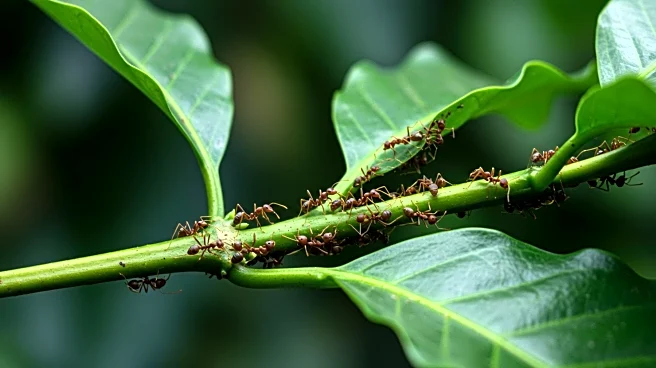What is the story about?
What's Happening?
Researchers from the University of Michigan, John Vandermeer and Ivette Perfecto, have conducted a study on a coffee farm in Puerto Rico, examining the interactions between three ant species and a predator fly. Their research, supported by the National Science Foundation, aims to understand how these interactions can be used to manage agricultural practices with fewer pesticides. The study reveals chaotic patterns in the dominance of the ant species due to the predator fly, which preys on one of the ant species. This dynamic interaction could potentially help farmers predict pest control outcomes on their farms.
Why It's Important?
The study highlights the complexity of ecological systems in agriculture and the potential to reduce pesticide use by understanding these interactions. This approach could lead to more sustainable farming practices, benefiting both farmers and the environment. By incorporating ecological principles into agriculture, the researchers aim to address issues such as global climate change and the welfare of farmers. The findings could transform agricultural practices, making them more environmentally friendly and economically viable.
What's Next?
The researchers plan to continue studying these ecological interactions to further understand the principles governing agricultural systems. Their ongoing work could lead to new methods for pest control that rely on natural ecological processes rather than chemical pesticides. This research may influence future agricultural policies and practices, promoting sustainability and reducing environmental impact.
Beyond the Headlines
The study raises ethical and environmental questions about the use of pesticides in agriculture and the need for more sustainable practices. It also highlights the importance of understanding complex ecological systems to develop effective and environmentally friendly farming methods.

















